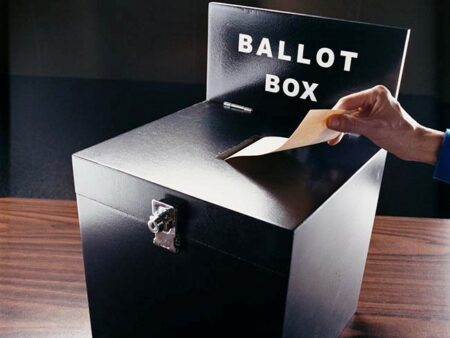20 November 2025
By Tom Collins
tom@TheCork.ie
An Coimisiún Toghcháin Recommends Legislative Change
An Coimisiún Toghcháin, Ireland’s independent electoral commission has today published a Research Report and its Recommendations Paper on the inclusion of candidate’s addresses on ballot papers. These are being published by An Coimisiún under its power to conduct research on electoral policy and procedure and make recommendations to the Minister and Government arising from the research.
The research arose from concerns that the inclusion of a candidate’s address on the ballot paper can give rise to safety and privacy risks for candidates, their families, or others with whom they may reside. For example, this concern was raised by the Oireachtas Taskforce in its Report on Safe Participation in Political Life and in submissions to An Coimisiún.
Under the Electoral Act 1992 candidates seeking to run for election to the Dáil must provide an address on the nomination paper, which is subsequently published on the ballot paper. This is replicated in legislation underpinning other elections. Having considered the rationale for the current practice, safety and privacy concerns and the case for reform, the Research Report identifies some specific proposals for change with a view to retaining the benefits of requiring a candidate’s address while addressing the safety and privacy concerns of candidates.
Following deliberation on the Research Report, An Coimisiún makes the following recommendations for reform to the Minister and Government:
- To address concerns about candidate safety whilst protecting the integrity of the electoral process there should be a break in the automatic link between the address provided on the nomination paper for verification purposes and the address to appear on ballot papers and in other public places.
- A nomination paper should according to this approach require two addresses – one which is exclusively for the electoral administration, and which must be adequate for verification purposes and a second address, address (2), to appear on the ballot paper and on public notices.
- There should be clear, acceptable options for candidates in deciding their address for publication on the ballot paper (address 2). Three such options are proposed: (a) a full address (the same as used on the nomination paper), (b) a partial address or (c) the area in which the address is located (local electoral area or electoral division).
The Research Report includes other proposals to ensure the integrity of the nomination and electoral process, and specifically urges that provisions should be made to facilitate candidates experiencing homelessness similar to those set out in Section 84 the Electoral Reform Act 2022
Welcoming the publication of the Research Report, the Honorable Ms. Justice Baker Chairperson of An Coimisiún Toghcháin said:
“I am delighted today that we publish this Research Report, and I commend to the Minister and to Government recommendations arising from our deliberations. An Coimisiún notes with disquiet the evidence in the Report regarding harassment, abuse or intimidation directed at electoral candidates, public representatives and their staff and families.
“While we recommend changes to ballot paper address requirements as a response to concerns on these issues, we believe the issue requires a broader response and would encourage all relevant stakeholders to reflect and take appropriate action, as these threats are an affront to the health of our democracy.”
Art O’Leary, Chief Executive of An Coimisiún Toghcháin said:
“The requirement for candidates to provide an address has been part of our democratic tradition since before the foundation of the State. For generations, it has stood as a symbol of openness and accountability — a reminder that those who seek public office do so in full view of the people they wish to serve.
“Having listened to the voices of political actors, candidates and their families, and looked carefully at how candidates’ addresses are shared and used, An Coimisiún believes that these proposed reforms honour both our tradition and the real world in which we now live. They safeguard the integrity of the nomination process, they ensure that voters continue to have the information they need, and they reflect a deep understanding of the challenges and pressures faced by today’s candidates.
“In this way, we continue to strengthen our democracy — protecting not only the right to vote, but also the courage of those who stand before the people.”

